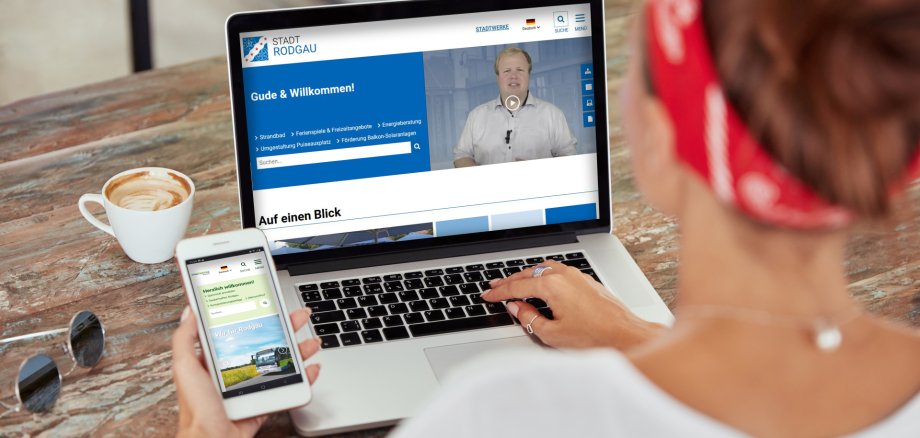Project start in spring 2024
The aim of the "relaunch" project launched in spring 2024 was to focus on citizens, take their views into account and present the diversity of urban issues as simply and intuitively as possible. The result has been live since 28 August. A mountain of work had to be done beforehand. It all started with considering who the site is relevant for and in what situation.
From the citizens' perspective
Specific target groups were identified and their life situations and concerns were visualised in exemplary people and described in scenarios. These "personas and scenarios" accompanied the development process and formed the basis for the selection of representative people from the community, which were used to navigate and compile topics in workshops. Topics were sorted into three groups, bundled and labelled with keywords.
Agile project in teamwork
At the same time, employees from all areas of the administration and the municipal utilities were brought together to form an agile project team, who worked together at regular intervals to solve the issues and work on the work packages. The core project team, consisting of the project manager Gregor Eberhard and the sub-project managers Kevin Fenkl and Christin Seiferth, compiled the results piece by piece on a separate platform.
Usability tests before launch
A few weeks before the launch, another group of citizens tested the pages in order to optimise them before going live. In particular, the search results, which were still unsatisfactory at the time, were then completely replaced by a new search version. The team would like to continue to develop the search on an ongoing basis in the future. To this end, the pages offer users the opportunity to send feedback after the launch date if they cannot find what they are looking for.
New design and comprehensive search
Because one thing is clear: although the publication of the website is a major step forward, the work continues. So what has changed on the new city administration and municipal utilities websites? Both sites have a new, still individualised face. A "relationship" can be recognised, which is intentional. The basic principles of the so-called information architecture are the same. This means that a person does not have to learn two different systems on the two sites. Both are based on the same system. This means that comprehensive searches are now possible without the searcher having to know where the information is located. This was different before. The municipal administration and public utilities sites were separate and unconnected. Using a common system also makes it easier for those responsible and saves time and resources.
Optimisation of accessibility
The requirement to provide accessible pages is now being improved both technically and editorially. For example, images are provided with alternative texts that can be read by visually impaired people using screen readers. Overall, shorter, structured texts, more intuitive icons and simple links now take users to the desired destination in different ways. When creating the pages, equal consideration was given to the display on smartphones, tablets and computers.
Overview pages
A lot of data from the click statistics was analysed and incorporated into the design. Overview pages now summarise different content into superordinate subject areas. This allows a quick overview. For example, the city administration's "Life" overview page provides an initial overall impression of the wide range of topics from educational work, theatre, art and the lido to special offers for children, young people and senior citizens.
Translation tool "DeepL"
The content of the council information system (Allris) for municipal bodies such as the city council and its committees can be found directly via the search function on both homepages. For people whose native language is not German, the high-quality translation into 12 languages by the 100% Google-independent, data protection-compliant service provider DeepL makes it easier to understand the content.
Chatbot in the starting blocks
And then there's the chatbot, which is first "sent to school" when the pages go online. It familiarises itself with the pages for around 6 to 8 weeks and then supports users with questions via text or voice input ... also in different languages, by the way.
There is so much more to say - but the best thing to do is to simply try out the pages at www.rodgau.de or www.stadtwerke-rodgau.de. The Communications & Public Relations department, headed by Press Officer Sabine Hooke, is happy to receive feedback at kommunikation@rodgau.de.
